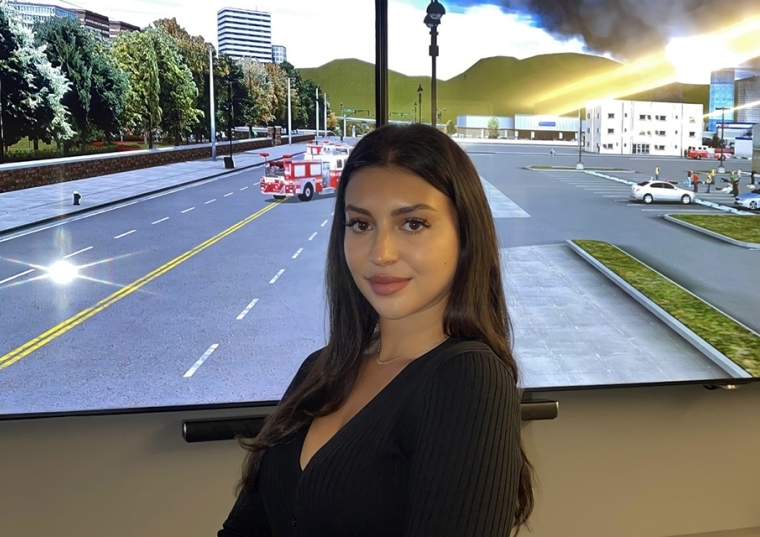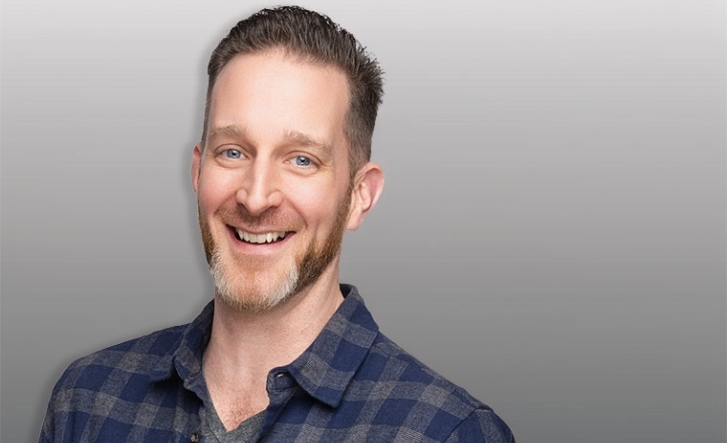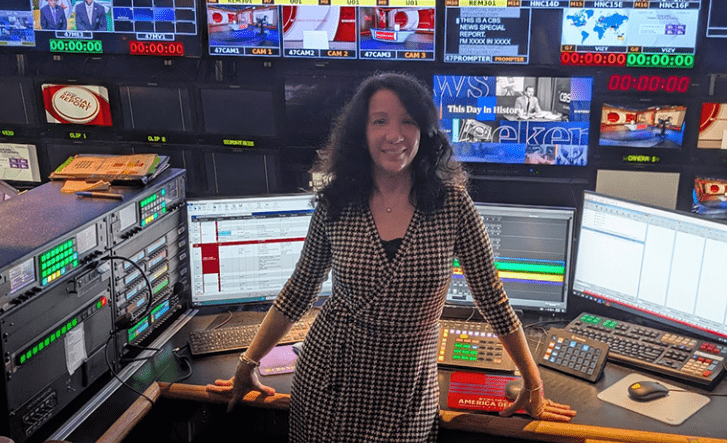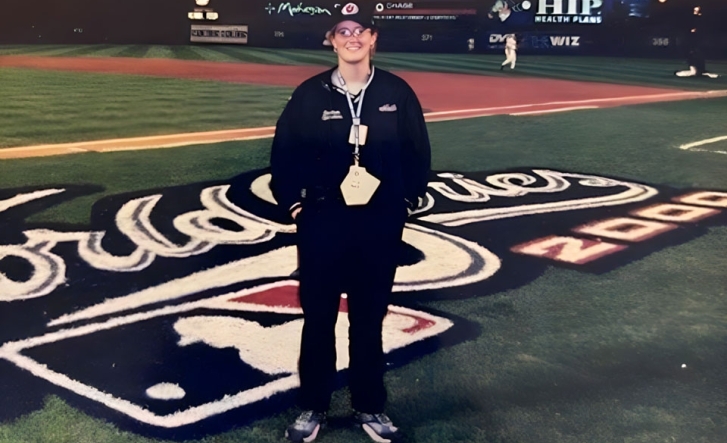St. John’s Fuels Alumna’s Passion for Homeland Security
Julia has found it to be a valuable learning experience to work alongside her peers who are very seasoned professionals.

“If you work hard, put yourself out there, and are open to opportunities,” she added, “you will succeed.”
Julia Varvaro ’18TCB, ’20MPS, ’24DProf and the other members of her close-knit cohort in St. John’s University’s doctoral program in Homeland Security swore by a simple but deeply binding motto: “Stayin’ 11.”
“Our motto meant that there were 11 of us left from the initial start of cohort three in 2020, and we said it often to encourage one another to keep going with the doctoral program,” explained Julia, became a triple alumna of the University when she graduated this year with a Doctor of Professional Studies degree from The Lesley H. and William L. Collins College of Professional Studies.
“We were not able to meet each other that entire first year because of the COVID-19 pandemic, but we worked around that obstacle with group chats and Zoom sessions on our own to get to know each other,” Julia recalled. “We finally were all able to meet in August 2021 during the residency stage of the program—and now we have become friends rather than just peers.”
Compared to her classmates, Julia was, at 24 years old, the youngest student and without any professional experience in the homeland security area when she joined the cohort. “All of the other students worked in the criminal justice or homeland security fields. Some of them were decorated veterans or experts in their respective specialties,” said Julia, who went straight into the doctoral program after earning a Bachelor of Science degree in Business from The Peter J. Tobin College of Business, with a minor in Arabic, and a Master of Professional Studies degree in Homeland Security and Criminal Justice Leadership.
Julia found it to be a valuable learning experience to work alongside her peers who are very seasoned professionals. “I was able to listen to their advice and learn from their service, since I lacked their practical and tactical experience,” she said. “But they have also leaned on me for advice, as they have returned to school for the first time in years after a long career. By leveraging our strengths and weaknesses with each other, we grew extremely close.”
Julia, who currently works as a Program Analyst for the Federal Emergency Management Agency, traces her passion for homeland security to her father’s work as an officer with the New York City Police Department during the September 11, 2001, terrorist attacks. “I remember that day very vividly. Thank God my father, Anthony Varvaro, was fine and was able to assist with the clean-up for years after the attack,” she said. “But it really impacted my dedication to counterterrorism and devotion to ensuring a brutal event like that never happens again.”
“Education and communication will help us solve the root causes of terrorism. This is why I was motivated to learn Arabic, aside from my interest in that culture and that part of the world,” said Julia.
She noted that her most significant deciding factor in choosing St. John’s was the University’s offering of Arabic. “I really wanted to learn Arabic, and the fact that St. John’s offered a minor in it absolutely sealed my interest in coming here.”
“I was motivated to apply for a student internship with the United States Secret Service because my language skills from St. John’s gave me an advantage over those applicants who did not know an additional language, especially when it comes to studying counterterrorism,” Julia said.
Her internship with the Secret Service, which took place in the agency’s Melville, NY, field office from August 2015 to September 2016, is a memorable highlight of her time at St. John’s. Noting one of the chief responsibilities of the Secret Service deals with financial crimes that include counterfeiting, Julia said most of her daily responsibilities involved categorizing counterfeit dollars and uploading the data into a secure database. “I basically became a counterfeit detection expert—which was very cool in and of itself,” she said.
In addition, since her internship occurred during the 2015–16 presidential election campaign, she had the opportunity to attend rallies by former President Donald Trump. “In those massive arenas filled with people, I was able to witness and learn how meticulous the communication is and how the Secret Service works with the local police departments to plan for contingencies and handle a large-sized crowd. Going behind the scenes and then watching the rally and the closing protection procedures were eye-opening experiences,” recalled Julia.
“That internship solidified my passion for security procedures and the intelligence reports that are necessary to coordinate a high-profile event,” she added. “I enjoy working behind the scenes, where people may not realize the amount of effort that is necessary.”
While earning her master’s and doctoral degrees, Julia has worked for CCPS as a graduate assistant and doctoral fellow, and has been grateful for the opportunity to work with professors on academic research. These days, she is teaching an undergraduate course in Homeland Security, Introduction to Intelligence, at CCPS.
In her academic pursuits, Julia has aimed to address issues such as national security, social justice, cyber warfare, and police activities, according to Julia’s mentor, Antoinette Collarini-Schlossberg, Ph.D., Chair and Associate Professor of the Division of Criminal Justice, Legal Studies, and Homeland Security.
At one point, Julia collaborated closely with Dr. Collarini-Schlossberg to work with faculty members to submit brief outlines of their lesson plans that addressed police community relations, training programs, and civil rights. She used the outlines to develop a comprehensive survey that evaluated the professors’ opinions on incorporating these topics within their course work.
She then analyzed the results and wrote a report that included the professors’ written objectives, as well as results from the survey and key recommendations. “The survey proved to be especially successful and garnered extensive support from the faculty, confirming that a majority of professors agreed that the implementation of these topics positively impacted students,” said Dr. Collarini-Schlossberg.
“Julia’s commitment to contribute to the evolving educational practices that significantly impact students and their critical thinking and analysis skills has made her a very valuable asset to the College,” the associate professor added.
Julia stressed the importance of students establishing working relationships with their professors as they strive to accomplish their academic and career goals. “The professors want to see you achieve and could be your strongest advocates when networking and applying for jobs. They are experts in their fields, have endless connections, and are usually more than happy to recommend an excellent student.”
“If you work hard, put yourself out there, and are open to opportunities,” she added, “you will succeed.”




